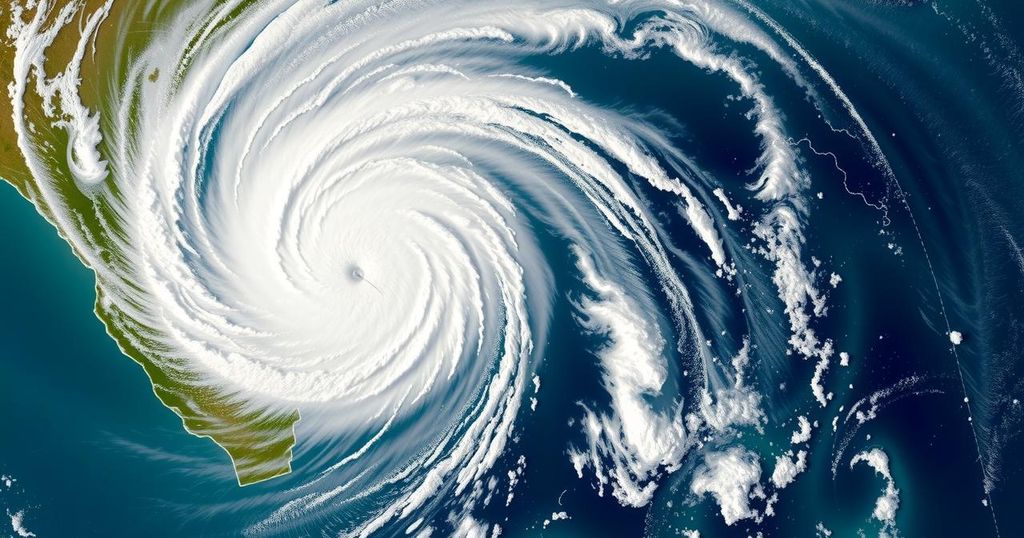Cyclone Chido Approaches: Impending Threat to Comoros, Madagascar, and Mozambique
Cyclone Chido is moving towards Comoros, Madagascar, Mayotte, and Mozambique, bringing strong winds and heavy rainfall. Authorities are preparing for significant impacts, including school closures in Comoros, evacuations in Madagascar, and red alerts in Mozambique. Over 2 million people are at risk as the cyclone approaches, prompting emergency responses to assist affected areas. Experts warn of the growing frequency and intensity of cyclones due to climate change.
Cyclone Chido, a formidable tropical storm, is progressing towards the islands of Comoros, Madagascar, Mayotte, and the mainland region of Mozambique. Anticipated to make landfall early Saturday, this cyclone is expected to unleash powerful winds and significant rainfall, posing a serious threat to the affected regions. In response, Comoros has mandated school closures, while Mayotte is under a red alert from the French national weather service in anticipation of the cyclone’s impact.
In Mozambique, a red alert has been declared in the northern provinces of Cabo Delgado and Nampula, with over 2 million individuals facing the potential consequences of Cyclone Chido. The Mozambique National Meteorological Institute predicts wind speeds could reach 200 kilometers per hour (124 miles per hour) upon the cyclone’s arrival on the African coast. Simultaneously, Madagascar is preparing for possible devastation as alerts have been dispatched to residents advising them of safety measures, with evacuations initiated in the northern region of Diana, anticipated to experience the storm’s most severe effects.
Authorities have been proactive in supplying food and emergency resources to areas vulnerable to the cyclone since the preceding Tuesday. The French government is taking precautionary measures to assist Mayotte, deploying emergency personnel and equipment to facilitate recovery efforts following potential damage from the storm. Climate specialists caution that cyclones in this area are intensifying, which can lead to increased flooding, landslides, and outbreaks of waterborne illnesses such as cholera, dengue, and malaria.
As the cyclone season commences, residents are advised to remain vigilant and adhere to safety precautions to safeguard themselves against this natural disaster.
The phenomenon of tropical cyclones, such as Cyclone Chido, has severe implications for coastal regions, particularly in areas like the Indian Ocean where climate change is influencing their intensity. The geographical proximity of Comoros, Madagascar, and Mozambique to the cyclone’s path underscores the relevance of preparedness measures, especially given historical patterns that predict dangerous weather events during the cyclone season. Understanding the potential devastation caused by such storms, including flooding and disease outbreaks, highlights the necessity for timely evacuations and resource allocation in vulnerable regions.
In summary, Cyclone Chido presents an imminent and dangerous threat to Comoros, Madagascar, Mayotte, and Mozambique. The necessity for preparation and vigilance is underscored by the adverse weather conditions anticipated as the storm approaches. Local authorities are mobilizing resources and enacting safety measures to mitigate damage and protect residents. As climate change continues to exacerbate the severity of tropical cyclones, the impacted regions must remain alert to ensure their safety in the face of natural disasters.
Original Source: www.inkl.com




Post Comment